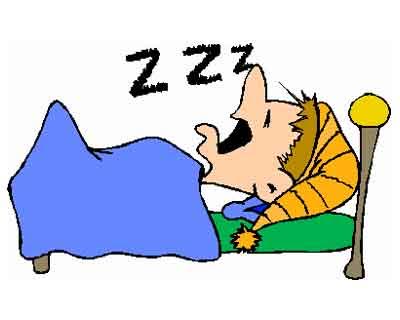- Home
- Editorial
- News
- Practice Guidelines
- Anesthesiology Guidelines
- Cancer Guidelines
- Cardiac Sciences Guidelines
- Critical Care Guidelines
- Dentistry Guidelines
- Dermatology Guidelines
- Diabetes and Endo Guidelines
- Diagnostics Guidelines
- ENT Guidelines
- Featured Practice Guidelines
- Gastroenterology Guidelines
- Geriatrics Guidelines
- Medicine Guidelines
- Nephrology Guidelines
- Neurosciences Guidelines
- Obs and Gynae Guidelines
- Ophthalmology Guidelines
- Orthopaedics Guidelines
- Paediatrics Guidelines
- Psychiatry Guidelines
- Pulmonology Guidelines
- Radiology Guidelines
- Surgery Guidelines
- Urology Guidelines
Losing tongue fat helps improve sleep apnea symptoms

Sleep apnea is a serious health condition in which breathing repeatedly stops and starts, causing patients to wake up randomly throughout their sleep cycles. The condition, which is usually marked by loud snoring, can increase your risk for high blood pressure and stroke. CPAP (continuous positive airway pressure) machines improves sleep apnea in about 75 percent of patients, studies suggest, but for the other 25 percent -- those who may have trouble tolerating the machine -- alternative treatment options, such as oral appliances or upper airway surgery, are more complicated.
Weight loss is an effective strategy for the treatment of obstructive Sleep Apnea (OSA) although exact mechanism behind this is not clear.
The researchers in the Perelman School of Medicine at the University of Pennsylvania have discovered that improvements in sleep apnea symptoms appear to be linked to the reduction of fat in one unexpected body part -- the tongue.
Using magnetic resonance imaging (MRI) to measure the effect of weight loss on the upper airway in obese patients, researchers found that losing tongue fat might help improve obstructive sleep apnea (OSA). The study has been published in the American Journal of Respiratory and Critical Care Medicine.
"Most clinicians, and even experts in the sleep apnea world, have not typically focused on fat in the tongue for treating sleep apnea," said Richard Schwab, MD, chief of Sleep Medicine. "Now that we know tongue fat is a risk factor and that sleep apnea improves when tongue fat is reduced, we have established a unique therapeutic target that we've never had before."
Stephen H. Wang, Yeshiva University Albert Einstein College of Medicine, Bronx, New York, United States, and colleagues enrolled 67 obese patients with OSA who were undergoing a structured weight loss program or bariatric surgery. They used magnetic resonance imaging (MRI) to determine the association between weight loss and reduction in the fat volume in the tongue and oral structures in obese patients to lessen the severity of sleep apnea.
At 6 months, patients who lost a greater percentage of weight overall also had greater reductions in the volume of tongue fat, pterygoid, and total lateral wall (measured by volumetric MRI). After controlling for weight change and clinical covariates, the percentage of tongue fat lost was associated with greater reductions in the apnea-hypopnea index (AHI).
The researchers calculated that reductions in tongue fat accounted for roughly 30% of the total effect of weight loss on AHI reductions, while no other soft tissue changes mediated the association.
They conclude: "New treatments that reduce tongue fat should be considered for patients with OSA." They mention cryolipolysis as one potential therapy.
The authors believe that tongue fat is a potential new therapeutic target for improving sleep apnea. They suggest that future studies could be designed to explore whether certain low-fat diets are better than others in reducing tongue fat and whether cold therapies -- like those used to reduce stomach fat -- might be applied to reducing tongue fat. However, Schwab notes, these types of interventions have not yet been tested.
For further reference log on to:
Journal- The American Journal of Respiratory and Critical Care Medicine.
DOI:https://doi.org/10.1164/rccm.201903-0692OC

Disclaimer: This site is primarily intended for healthcare professionals. Any content/information on this website does not replace the advice of medical and/or health professionals and should not be construed as medical/diagnostic advice/endorsement or prescription. Use of this site is subject to our terms of use, privacy policy, advertisement policy. © 2020 Minerva Medical Treatment Pvt Ltd